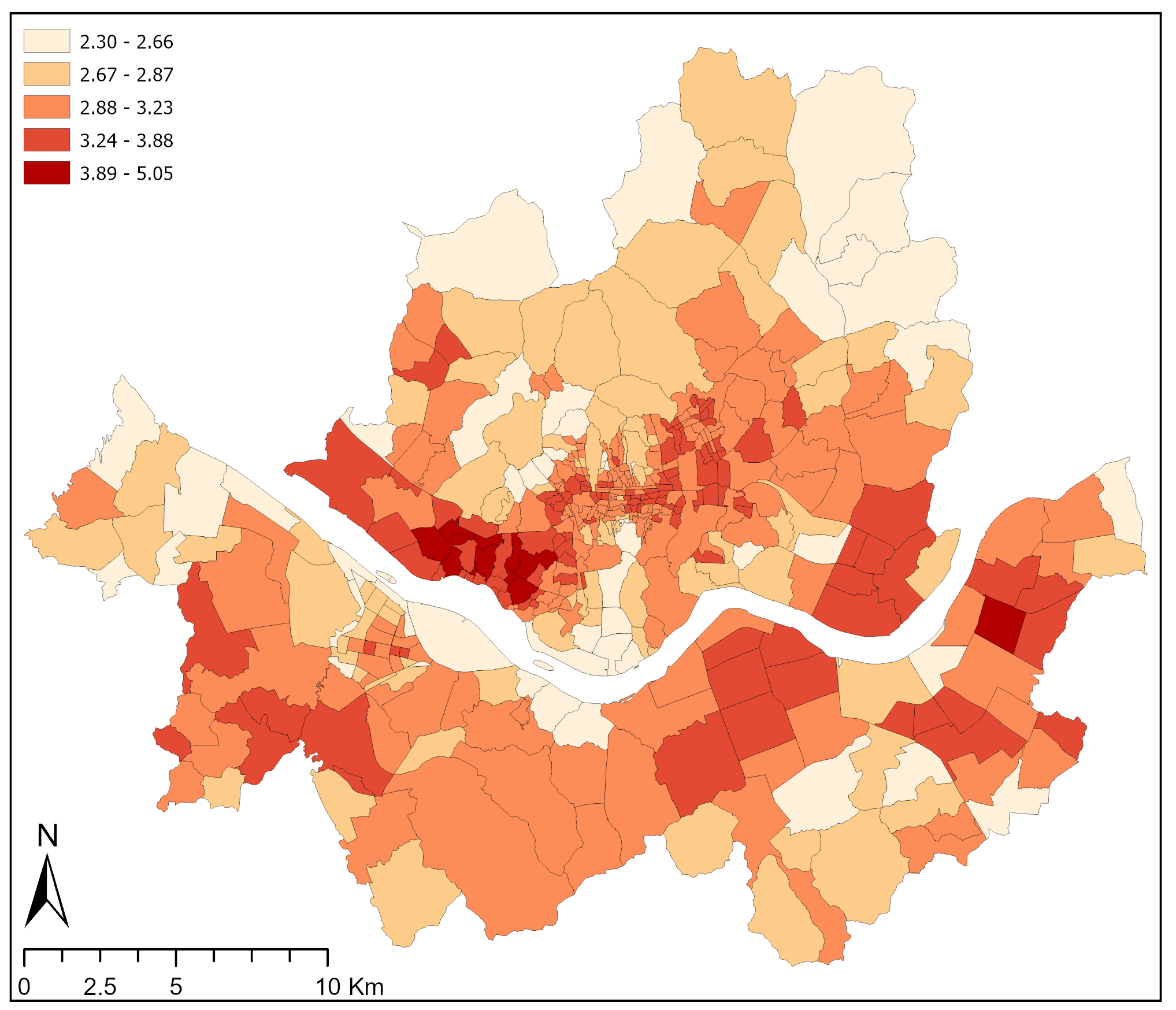
Time: 2024 | Seoul, South Korea
Role: Conceptualizing, collecting data, building models, and writing the paper
Introduction: Human well-being is a fundamental aspect of building smart and sustainable cities. As urban populations grow rapidly, understanding how the built environment impacts mental health, particularly stress, has become increasingly important. Perceived urban stress, influenced by factors such as building density and spatial design, plays a crucial role in determining residents’ quality of life. However, large-scale assessment of such subjective experiences remains challenging. In response, this project presents a novel machine learning-based framework that integrates urban building density, space syntax analysis, and visual environmental features to quantify perceived urban stress. This interdisciplinary approach seeks to bridge the gap between urban design, human perception, and computational analytics to support better-informed urban planning.
Publication: https://doi.org/10.1016/j.buildenv.2024.112054